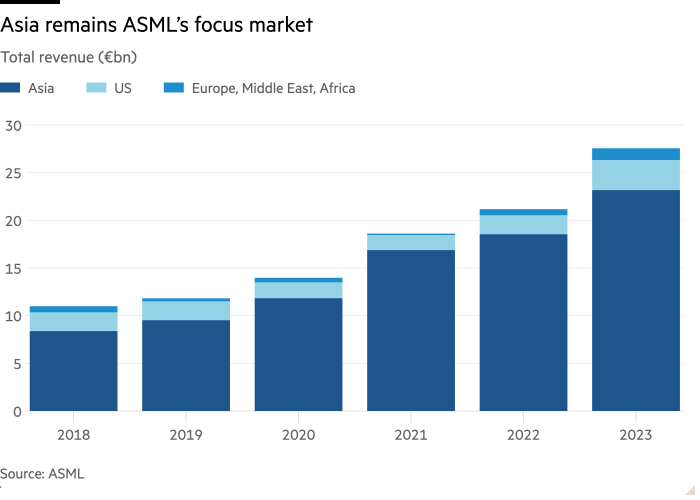
Hello everyone, this is Cissy in Hong Kong.
In China, there’s a saying that when inexperienced investors start playing the stock market, it’s time to get out. Events of this past week seem to back up that notion.
Hong Kong shares plummeted on Tuesday, the day mainland markets reopened after the seven-day Golden Week holiday. Someone I know of, who isn’t an experienced stock trader, had borrowed heavily to invest in Hong Kong-listed Chinese property stocks last Thursday, but on Tuesday, he suffered heavy losses as his leveraged position meant he was forced to liquidate his holdings.
That person wasn’t alone in such risky behaviour. In this stimulus-triggered, casino-like market, I heard of another investor who took out online loans during the holiday and went all-in on Tuesday morning on a highly volatile Shenzhen-listed stock that had already surged 18 per cent for fear of “missing out on the once in a lifetime opportunity”. But he ended up with significant losses after the benchmark indices experienced their largest daily declines since 2020. Reflecting on his losses, he said he was “badly misled by all these online posts, and I can only blame myself”.
Even college freshmen and delivery workers were joining the frenzy, while influencers were telling their followers to jump on the bandwagon and keep buying. China’s economic downturn, triggered by a property crisis, only exacerbated the situation. With their property investments continuing to depreciate, many people had become desperate for returns.
For most of the time that mainland markets were closed, Hong Kong shares were rallying. Some Chinese semiconductor stocks almost doubled in market capitalisation from late September, when Beijing announced new economic stimulus measures. Investors bought in at these inflated prices, only to end up losing money a few days later.
The frenzy brings to mind the stock crash of 2015, which had far-reaching consequences both domestically and internationally. An economist told me, however, that the current correction may not be a bad thing, as cooling the stock frenzy and averting a serious crash is a crucial step towards revitalising China’s economy.
Irreplaceable Asia

Asia will remain the centre of the chip industry despite the build-up of chip production in the west, Christophe Fouquet, president and CEO of Dutch chip production equipment maker ASML, told Nikkei Asia’s Cheng Ting-Fang in an exclusive interview.
Even with the launch of new chip plants in the US and Europe backed by subsidies and tax incentives, semiconductor capacity is growing faster in Asia and the region will remain the leader in production for many years to come, Fouquet said.
Spending on chip production equipment has long been viewed as a key barometer of the outlook for chip demand and production capacity growth. Asia accounted for 84 per cent of ASML’s revenue last year, with Taiwan its largest individual market, followed in the region by China, South Korea, Japan and Singapore. The US and Europe generated 12 per cent and 4 per cent, respectively, of the company’s sales.
In his view, Europe and the US should only use the incentives temporarily to create time and space to solve the more structural challenges, and cost-effectiveness should be key for long-term development.
America’s attraction
Chinese artificial intelligence start-ups are stealthily launching products in the US, which has a larger pool of high-spending users than their home market.
MiniMax, ByteDance and 01.ai are among a group of Chinese tech companies that have entered the US market with AI apps, seeking to emulate TikTok’s success, writes the Financial Times’ Eleanor Olcott.
The biggest breakout app has been Talkie, from Shanghai-based MiniMax, which has told investors it will net about $70mn in sales this year, a lofty projection by the standards of AI start-ups that have struggled to monetise their technology.
That Chinese AI apps are gaining traction overseas underscores the potential for the country’s tech groups to launch competitive products, despite Washington’s restrictions on the highest-end chips used to power model training.
Unbreakable ambitions
The Japanese government will support the development of quantum encryption technology, an effort expected to involve tens of billions of yen (¥10bn equals $68mn) in public-private investment over the next five years, writes Nikkei’s Kiu Sugano.
Japan and others are in a race against time to prepare for the emergence of quantum computers, which are expected to enter into practical use in 2030. Experts warn that these computers will be able to crack all current encryption techniques, making new forms of data protection a key issue.
Quantum encryption involves the transfer of encrypted data with a key converted into photons through fibre optic cables. Cracking this type of encryption is theoretically impossible since any attempt to steal data from the key would change the state of the photons and alert the system.
Japanese companies possess world-class technology in terms of key generation speed and transmission distance, but other countries have taken the lead in researching practical applications for quantum encryption.
Made in Mexico
As the AI boom continues, Foxconn is building a gigantic AI server manufacturing facility in Mexico to meet the “crazy” demand for Nvidia’s next-generation Blackwell chips, writes Nikkei Asia’s Lauly Li.
Nvidia’s GB200 server system is powered by its Grace Blackwell “superchip” and is the most powerful AI server system to date and Foxconn will start shipping a “small volume” of the GB200 systems in the final quarter of this year. The company did not provide a timeline for when the Mexico facility will come online.
A major iPhone assembler, Foxconn is also the world’s largest server maker, accounting for 40 per cent of the global market. The company’s server business has been its strongest driver of revenue growth this year amid a slowdown in the smartphone market.
Foxconn Chairman Young Liu said on Tuesday that the company’s diverse manufacturing footprints for servers will become more critical going forward as governments look to bring production of sensitive tech hardware closer to home for national security reasons.
Suggested reads
-
Cryptocurrencies flying high in India despite tough regulations (Nikkei Asia)
-
Samsung issues public apology after falling behind on AI (FT)
-
MediaTek launches AI smartphone chipset with latest TSMC 3-nm tech (Nikkei Asia)
-
Shein’s UK arm surpasses £1.5bn revenue mark (FT)
-
North Koreans harness AI, fake American IDs to land remote IT work (Nikkei Asia)
-
The perils of America’s chips strategy (FT)
-
AI to turn ‘Dragon Ball,’ ‘Gundam’ voices into English, Chinese (Nikkei Asia)
-
Baidu plans Apollo Go global expansion as Tesla prepares to unveil robotaxi (Nikkei Asia)
-
The Nintendo Museum should be a gamer’s paradise. But there’s a bug in the system (FT)
-
Honda showcases EV megacasting tech in race against Tesla (Nikkei Asia)